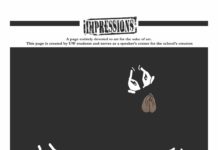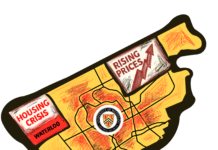Dr. Charmaine Dean, vice-president, researcher and professor in the department of statistics and actuarial science at UW, was recently honored with the prestigious title of Chevalier (Knight) in the Ordre des Palmes académiques by the French government.
The award, first established by Napoleon, is a civil honor recognizing academic contributions and efforts to advance collaborations with France. Dr. Dean’s work in building the Canada-France Quantum Alliance and her involvement in various collaborations with French institutions played a pivotal role in this recognition. She highlights the importance of quantum science, a significant area of priority for Canada, and her efforts to advocate for strategies that align with Canadian and French interests.
When asked about her reaction to receiving the Chevalier title, Dr. Dean admits her surprise. “Most of these awards go through a nomination process, but this one is bestowed by the government of France. I had no idea I was on the slate,” she says, describing it as a “surprise birthday party” moment. She felt deeply humbled and thrilled to be chosen by the French government.
This bestowal is a recognition of the impact Dr. Dean has had in her extensive professional career. However, before delving into advanced statistics and assuming her numerous high-ranking leadership roles, she came from truly humble beginnings. Her story begins in the vibrant landscapes of Trinidad and Tobago, where she grew up in a family that, while not wealthy, placed immense value on education. “My mother never had a high school degree, but she always stressed the importance of obtaining an education. She had a lot of passion and enthusiasm for learning, and that enthusiasm was infectious,” Dr. Dean recalls. Every day, upon returning from school, her mother eagerly awaited to hear about her day and what she had learned.
Mathematics came naturally to Dr. Dean. She fondly remembers her transition from elementary to high school, when she received a math textbook at the beginning of the summer and worked through it for fun. “It was a definite geek activity, but I fell in love with it,” she says. This passion led her to university, where she discovered statistics during her undergraduate studies.
After her undergraduate degree, she had limited opportunities to use statistics in specific projects. However, a pivotal moment came when a professor from the University of the West Indies reached out, involving her in an interdisciplinary project that marked her first foray into data science.
Her graduate work ultimately brought her to UW, where she pursued both her master’s and PhD. During this time, she had numerous opportunities to interact with the industry and other partners, thanks to the collaborative philosophy of her supervisor. This experience laid the foundation for her future work at Simon Fraser University, where she spent 22 years developing tools to solve practical problems rather than focusing solely on mathematical theory.
In British Columbia, Dr. Dean tackled two significant issues: fire science and health inequities. Drawn to these areas by personal interest, she addressed the complexities of fire management and health disparities. “The problem was that you can’t fight all fires,” she explains. Her work involved critical infrastructure assessment, geo-social science, and collaboration with experts across Canada to form a national team addressing fire science challenges.
Looking ahead, Dr. Dean envisions a bright future for international collaborations in academia. She emphasizes the significance of Horizon Europe, a major program offering vast potential for collaborations with Europe. “Canada is now a player in Horizon Europe, and it’s one of the biggest international portfolios available,” she notes. UW is actively exploring opportunities within specific thematic pillars to support student training, research development, and market expansion for startups.
Dr. Dean stresses the importance of early involvement in such initiatives, encouraging faculty members and students to seize these opportunities. Her goal is to enhance the university’s international collaborations, particularly with Europe, to foster academic and research excellence.
For young researchers and students aspiring to follow in her footsteps, Dr. Dean offers invaluable advice: “Be open to opportunities,” she says, emphasizing data science’s interdisciplinary and collaborative nature. She encourages students to immerse themselves in the domains they are working in and to have a passion for the problems they are solving.
Dr. Dean also highlights the importance of collaboration and taking different perspectives. “You need to be an expert in your field, not just have surface knowledge. Find your niche, whether it’s on the technical side, statistics, data science, AI, or machine learning,” she advises. She underscores the imperative of doing work that makes a difference and the importance of effective science communication.































